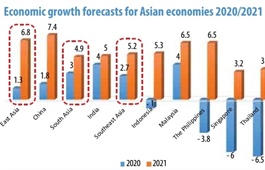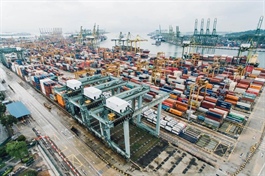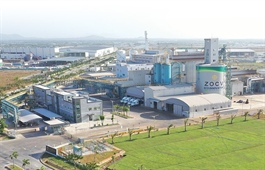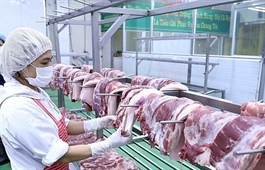Pay rises hinging on recovery policy
Pay rises hinging on recovery policy
If adopted, an increase in the region-based minimum wage for non-state employees next year will further pressurise local businesses, almost all of which are making efforts to deal with the aftermath of the global health crisis.
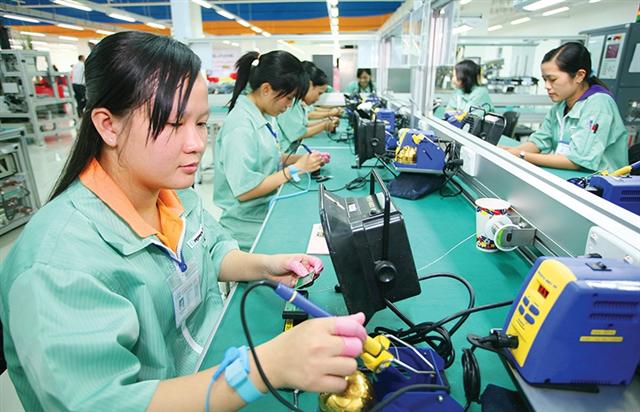
Pay rises hinging on recovery policy, illustration photo/ Le Toan
|
A debate began last week over a climb in minimum wage for 2021 at the first meeting of the National Salary Council. During the meeting, two options for the wage were put forward – a halt on pay rises, or an increase of only 2.5 per cent on-year.
The first proposal would maintain the existing level until the end of 2021. The advantage is that it would help businesses overcome difficulties caused by the COVID-19 pandemic. Before this year, the minimum salary had been increasing consecutively since 1997, at an annual average rate of 4-5 per cent. However, in the short term, a pause on pay rises will not help to meet the minimum living standards for employees, according to government regulations.
Regarding the second proposal, from July 1, 2021 the average adjustment of 2.5 per cent will be applied for private businesses in order to ensure maintaining the minimum living standards of workers. This figure is calculated based on the increase in the consumer price index for 2020.
However, if the National Salary Council attains approval for the 2.5 per cent increase, it would cause pressure for private businesses during the uncertainty of global recovery and stabilisation of production as countries try to fight out of the coronavirus crisis. Any growth in salaries for employees would also be in line with the rise in expenses the businesses pay for their insurance and union dues.
Currently, employers are responsible for 21.5 per cent insurance fees for employees following Decision No.595/QD-BHXH dated April 14, 2017 providing guidelines in collecting social insurance, health insurance, unemployment insurance, insurance on labour accidents and occupational disease, and managing social insurance books and health insurance cards.
Thus, with the growth rate of 2.5 per cent, equalling VND80,000-100,000 ($3.40-4.35) per employee per month, businesses running manufacturing plants that employ thousands of labourers, such as those operating in garments, footwear, or component assembly, will shoulder the heavy cost burden over the next year.
Hoang Quang Phong, vice chairman of the Vietnam Chamber of Commerce and Industry (VCCI), on behalf of employers, said that major industrial companies are on the verge of bankruptcy due to COVID-19. Therefore, pay rises should be carefully reviewed before making a decision.
According to a VCCI survey, 82 per cent of businesses forecast a downturn in their revenues this year. Those include 30 per cent estimating a plunge of 30-50 per cent, and 22 per cent foreseeing more than a 50-per-cent decline.
“Based on discussions with business associations, we recommend not adjusting the minimum wage increase in 2021,” said Phong.
However, Ngo Duy Hieu, vice chairman of the Vietnam General Confederation of Labour (VGCL), argued that the coronavirus outbreak has put labourers across the country into a bind, and improving income for them may be necessary to help them overcome new challenges.
A VGCL report pointed out that under the COVID-19 lockdown, more than 460,000 labourers in formal sectors were directly impacted in wages, jobs, and their daily lives as of the end of May.
According to the National Centre for Socio-Economic Information and Forecast, the inflation rate of Vietnam in the 2021-2025 period will fall by 3.5-4.5 per cent. Thus, the estimated 2.5 per cent increased rate would not cover the daily costs for labourers over that period. Meanwhile, the current minimum wage has yet to meet full living standard requirements for employees – the most common topic discussed at annual meetings regarding wage increase adjustments.
“Both employers and employees are facing difficulties, thus we will make an effort to harmonise the benefit of the two parties by both protecting the right of labourers and sharing difficulties with businesses,” Hieu said.
The National Salary Council will continue to organise meetings to discuss final proposals for the regional minimum wage for 2021, and submit to the prime minister for approval.
In 2020, the regional minimum wage was reported to rise by 5.5 per cent with the increase standing between VND150,000 ($6.5) and VND240,000 ($10.4) depending on region. Notably, the application was VND4.42 million ($192) for region 1, VND3.92 million ($170.40) for region 2, VND3.43 million ($149) for region 3, and VND3.07 million ($133.40) for region 4.










